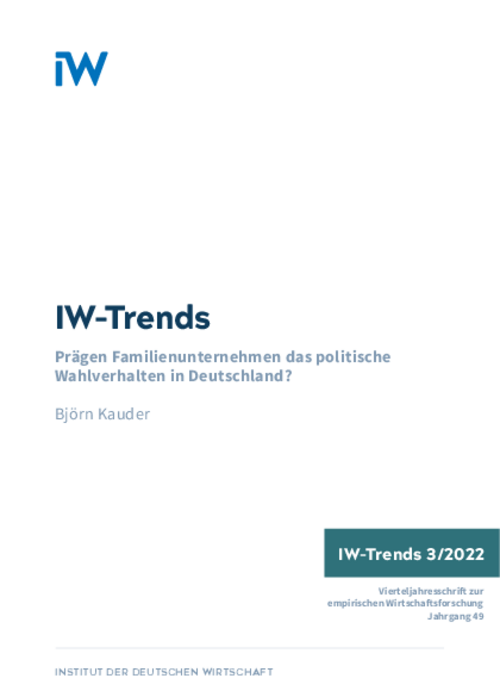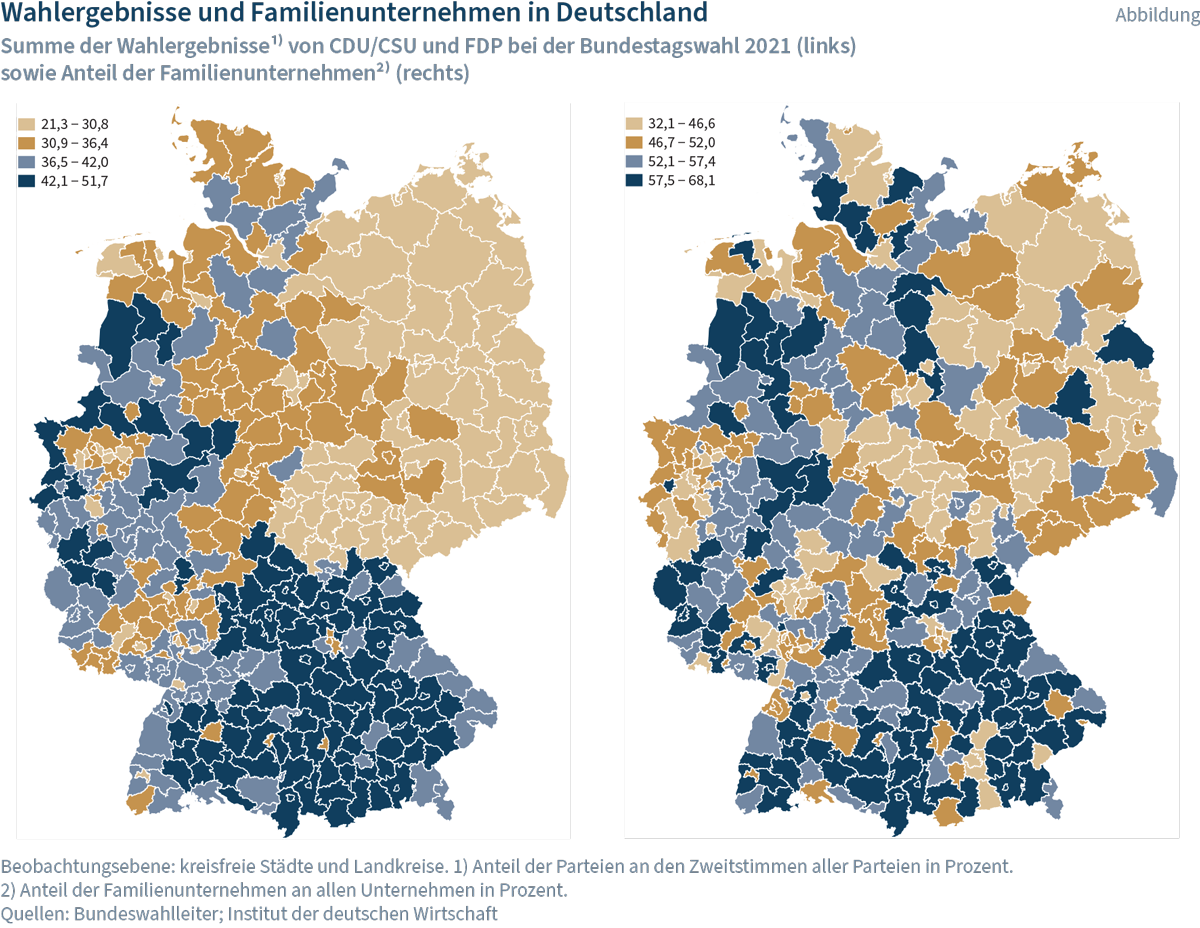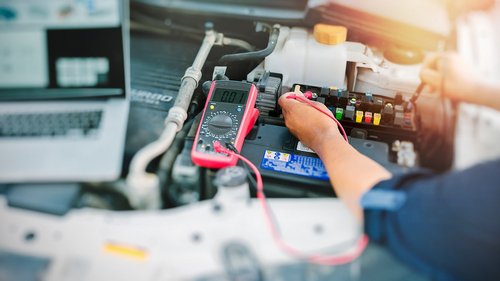In recent years family businesses have become an object of research in their own right. Indeed, it has been shown that, far from developing less dynamically than other firms, as once assumed, family businesses actually outperform their peers.

Do Family Businesses Shape Political Voting Behaviour in Germany?

In recent years family businesses have become an object of research in their own right. Indeed, it has been shown that, far from developing less dynamically than other firms, as once assumed, family businesses actually outperform their peers.
The present study complements this research by examining the extent to which family businesses shape political voting behaviour. To do this, the author investigates whether the local importance of family businesses correlates with certain political trends in recent nationwide elections. The results show that, in the 2021 general election, the Free Democratic, or Liberal, Party did better in regions with a high proportion of family businesses. This represented a change from the 2019 European election and the 2017 general election, in both of which a concentration of family businesses led to a higher share of votes for the centre-right Union parties (the Christian Social Union in the southern state of Bavaria and the Christian Democratic Union in the rest of the country) at the expense of the SPD, Germany’s social democrats. Notably, however, these effects can only be observed in Germany’s north, west and south, and are completely absent in the country’s once-communist eastern states. Several possible explanations for the influence of family businesses on voting behaviour are put forward. These include the societal and political commitment of family businesses and a stronger feeling of job security and increased identification with employers leading voters to give more consideration to corporate interests at the ballot box. The shifts in the parties benefiting from this identification are no doubt closely related to the question of which party leader would make the best Chancellor.


Do Family Businesses Shape Political Voting Behaviour in Germany?

More on the topic

How SMEs and start-ups cooperate in the automotive industry
Cooperation between established companies and start-ups offers expanded opportunities to innovate and drive the digitalization of the economy.
IW
The election programs of the parties for SMEs and start-ups
Der Mittelstand bildet mit nahezu 3,5 Millionen Unternehmen die Basis der deutschen Wirtschaftsstärke.
IW